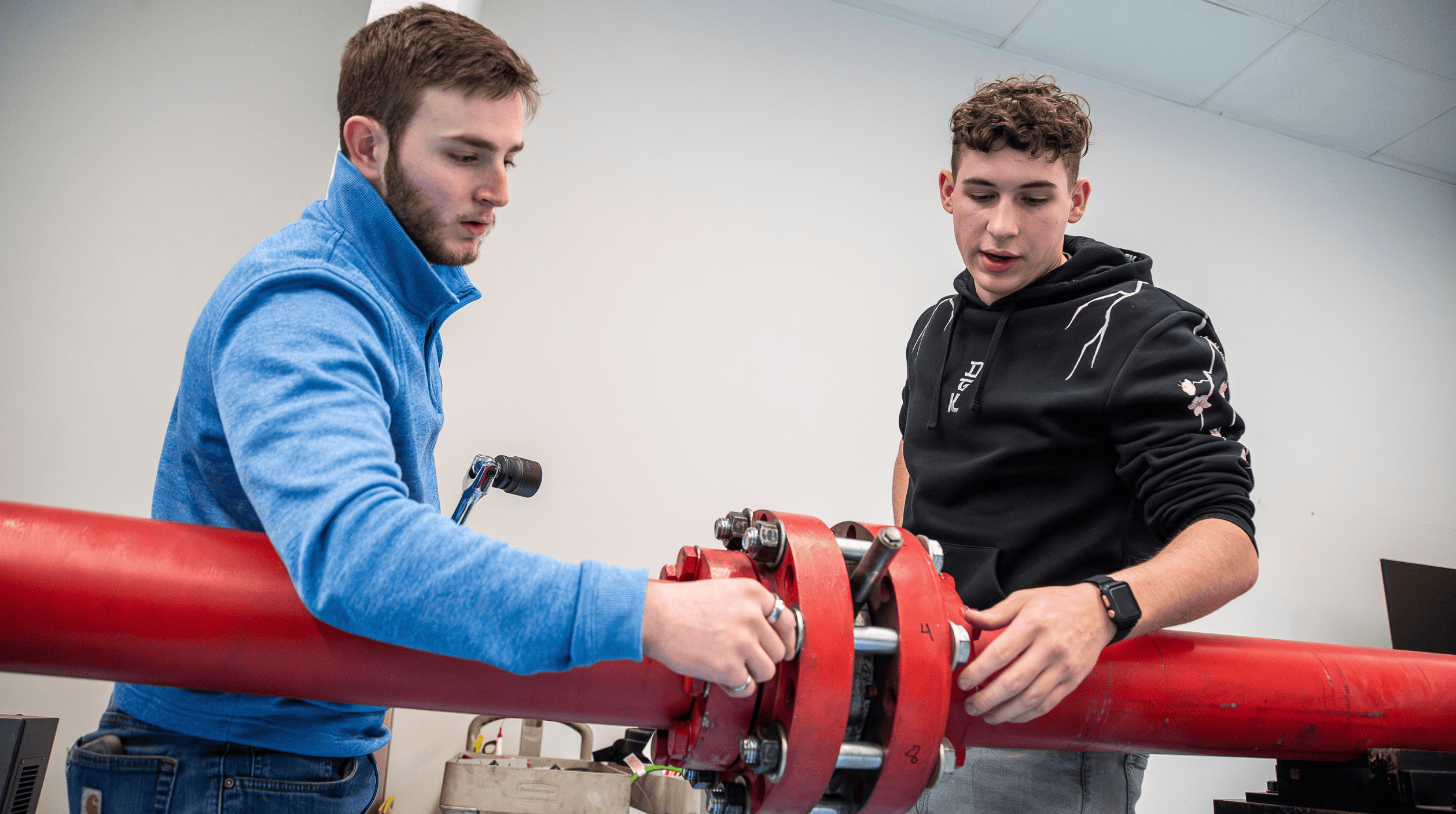Engineering Internships and Co-ops
Gain real-world engineering experience and build your resume with a paid co-op while earning your degree.
- Home
- Academics and Admissions
- Internships & Co-ops

Work Alongside Industry Professionals
A cooperative education (co-op) allows you to step away from the classroom and spend a semester or more working full-time in a professional engineering setting, applying your skills alongside seasoned engineers and industry leaders. Co-ops provide valuable hands-on experience, help you build industry connections, and offer competitive compensation while you learn. When you are on co-op, you will maintain full-time student status while putting your financial aid and scholarships on hold and have continued support from the School of Engineering.
How is a Co-op Different from an Internship?
Internships are a valuable opportunity for students in any field to gain practical skills, build connections, and add experience to their resumes. Typically lasting one summer, internships can be paid or unpaid.
For engineering students, a co-op offers a deeper, more immersive experience. Unlike a short-term internship, co-ops allow students to spend a full academic or calendar year working full-time in an engineering-related position, applying their coursework in real-world settings. Most co-ops begin after a student’s sophomore or junior year, once they have completed key major-specific courses and can actively contribute in a professional environment.
With co-ops lasting at least 16 weeks, students gain extended exposure to real-world engineering challenges, develop technical expertise, and build valuable industry connections—giving them a competitive edge in their careers.

Launching careers from the classroom
"I wouldn't have been as prepared for my internships and co-ops with SpaceX, Apple, and the DAAD RISE Program in Germany if it wasn't for the background knowledge that the faculty here at Ole Miss has provided me in and outside the classroom."
Stephanie Hanford
Mechanical Engineering
Frequently Asked Questions
Our co-op program is designed for undergraduate engineering students. While the School of Engineering does not require participation to graduate, we strongly recommend it.
- Candidates for co-op must be enrolled and in good standing with School of Engineering
- Minimum 2.5 cumulative overall GPA
- A formal offer of employment to work a minimum of 37.5 hours per week for the full duration of the term as defined by the UM Academic Calendar or at least 12 weeks during the Full Summer Term.
There are two designated word terms per year, including Fall and Spring semesters. Students are not required to participate in both terms. Employment opportunities for co-op may be completed in singular, consecutive, or alternating terms. Work assignments and duration will be determined in coordination with the employer, the student, and the Dean’s Office.
- If you have an offer and meet the requirements, you should submit the Application for Engineering Co-op Program for approval from the school. If you want to see if you are eligible for additional federal aid, you should also submit the Engineering Co-op Financial Aid Agreement.
- During the approved co-op assignment, participating students will be administratively enrolled in C OP 300 by the Dean’s Office. Enrollment in this web-based course establishes full-time student status and provides support for the student during the co-op assignment.
- Students enrolled in C OP 300 are required to complete ALL assignments presented in the Blackboard course in order to receive a passing grade. The course is assessed on a pass/fail grading scale.
- Student’s regular 8-semester scholarships and financial aid awards will be put on hold during approved co-op assignments. Upon return for a regular academic semester, all awards will be re-instated.
All co-op students are paid. Most co-op students make $20+/hour plus housing assistance. Most internships offer at least $15/hour although some are unpaid.
If outside of Oxford, the student usually lives in a rental apartment. Some companies offer housing assistance in the form of a company-leased apartment. Others provide a housing stipend and assist students in finding housing for the duration of the work term.
In addition to housing costs, Ole Miss costs for the student include:
- A pro-rated Capital Improvements Fee and Student Activity Fee (approximately $10) for each co-op assignment.
- Additional fees may be charged to the student’s bursar account, as applicable, including Greek fees, housing fees, Flex Dollars, meal plans, pre-existing balance or late fees, etc.
Get in touch for help with co-ops and internships
Megan Miller
- Assistant Dean of Student Programs
